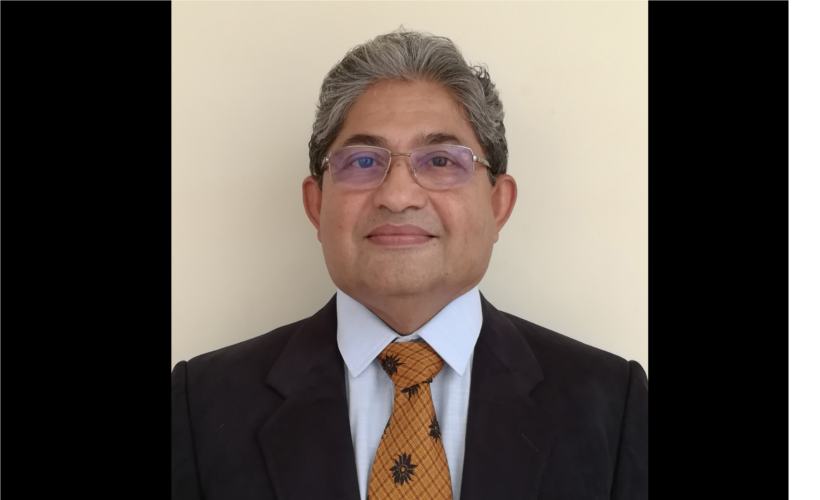
It is vital that we remember the foundation on which economic development are built
The objective of this article is to examine the moral or ethical foundations of our economic development as one of mutual activity, to include everyone and exclude none, so that the well-being of society is established.
“It is not from the benevolence of the butcher, the brewer, or the baker that we expect our dinner, but from their regard to their own self-interest. We address ourselves not to their humanity but to their self-love, and never talk to them of our own necessities, but of their advantages.” This is a celebrated quote from Adam Smith’s work, An Inquiry into the Nature and Causes of the Wealth of Nations (1776). It presupposes a society where basic commerce is part and parcel of life. Exchange of goods and services is the fundamental principle of economics. It cannot run in a vacuum, but always in a society which has producers and consumers. Thus, economics is a social activity; it grows from simple transactions of exchange to much complex and global business operations.
Over time, economics began to lose its social character and concentrated more on competitive commerce and amassing of money for its own sake, thus jeopardising the very definition of economics, which is primarily an activity by society and for society. As a result, only those who possessed more and more money became important, and the less fortunate deprived of gainful economic activity turned out poor. ‘Rich’ and ‘poor’ became the identity of the people, leading to social inequality and economic injustice. The students of economics begin their discipline by studying Alfred Marshall who, in 1890, published his renowned work Principles of Economics. The famous definition is found in these lines: “Economics is a study of mankind in the ordinary business of life; it examines that part of individual and social action which is most closely connected with the attainment and with the use of the material requisites of well-being.” Scholars of conservative economics, of course, dislike this definition, saying that it is a welfare state promoting communism which does not work. There are goods and services which do not bespeak of the welfare such as production of tobacco, drugs, prostitution, etc, but they do serve the self-interest of such providers. Welfare state goes beyond the scope of economics, they argue. Economics is about earning wealth and using it for one’s own satisfaction. The business of economics is primarily value addition to the investor. It is all about market run by the forces of demand and supply.
Well, whether one likes it or not, free market economy is a reality; so also, the existence of the rich and poor is a reality, too. Competition, strife and struggle are a very hard reality. Life is hard; life is not fair; that too is an inescapable reality. In short, it is about poverty. In India, it is more poverty than riches, promise of welfare and its unfulfilment.
Often, the problem is that the poor accept the shibboleth that life is not fair; it is fate, so accept it. This psyche has overburdened India and is the root cause of poverty. The will to rise above challenges is missing. Rich-poor economics has depraved the minds of the wealthy. The crumbs of welfare schemes thrown at the public have only bred corruption. In this scenario, there steps in the wisdom of the liberal economist, Amartya Kumar Sen whose works have influenced economics and society for over four decades. His economics is considered ethical economics, welfare economics, development economics, and capabilities economics – all of them endeavouring the single economic goal about economic equity in society. In his theory of poverty and famines, his analysis shows that hunger in the populace is not as much to be attributed to lack of food, but to rising inflation and bad implementation of government policies. This leads to the next theory about poverty and inequality, which was essayed into considering the gap between people below the poverty line and their consumption levels. In the concept of capabilities – another theory concerning the index of the achievement of wellbeing – he was able to demonstrate the functioning of a human being in different capacities in society. Further, in the theory of entitlements, he advocated that in the absence of legally enforceable entitlement – that is, what is due to every citizen by right – the market can step in to provide it if it can provide everyone with employment. Markets have the power to enhance human capabilities and eliminate endemic abject poverty and depravation.
In his next theory, he proposed a solution to the burgeoning labour surplus economy of India. He suggested that, instead of the obvious labour intensive technique, to adopt a capital intensive technique which will expand the economy and thus be a source of full employment. The time series criterion is a complex and highly speculative theory that deals with the problem of an investment planner. Two factors are considered in this theory: the diminishing marginal social utility of income with the rising income level, and the uncertainty of the future. Finally, themes such as land reforms, financial reforms, expansion of free markets, attention to health and education should help the country to lift out of poverty and be counted among those enjoying a better quality of life.
Sen’s economic philosophy is actually based on Adam Smith’s first book, The Theory of Moral Sentiments (1759): “This disposition to admire, and almost to worship the rich and powerful, and to despise or, at least, neglect persons of poor and mean conditions is…the great and most universal cause of the corruption of our moral sentiments.” (Chapter II, Section 3)
There is a great groundswell of movement of social consciousness coupled with social justice in our country which is trying to imbibe the values of social justice and economic wellbeing for all. This movement has nothing to do with either philanthropy, through which numerous institutions have been rendering their service to the humanity in distress, or some charitable activity by non-governmental organisations. It concerns social entrepreneurship where a social purpose business is established by a legally established body as a cooperative, non-profit organisation or one whose objective is social equity. In the next three articles, we shall shed more light on them.
One must bear in mind a quote from Kathy Calvin, president and CEO of United Nations Foundation: “I think one of the most exciting trends right now is the birth of the global citizen who is interested in not only improving his or her immediate neighbourhood, but also helping his or her neighbours across the globe”





